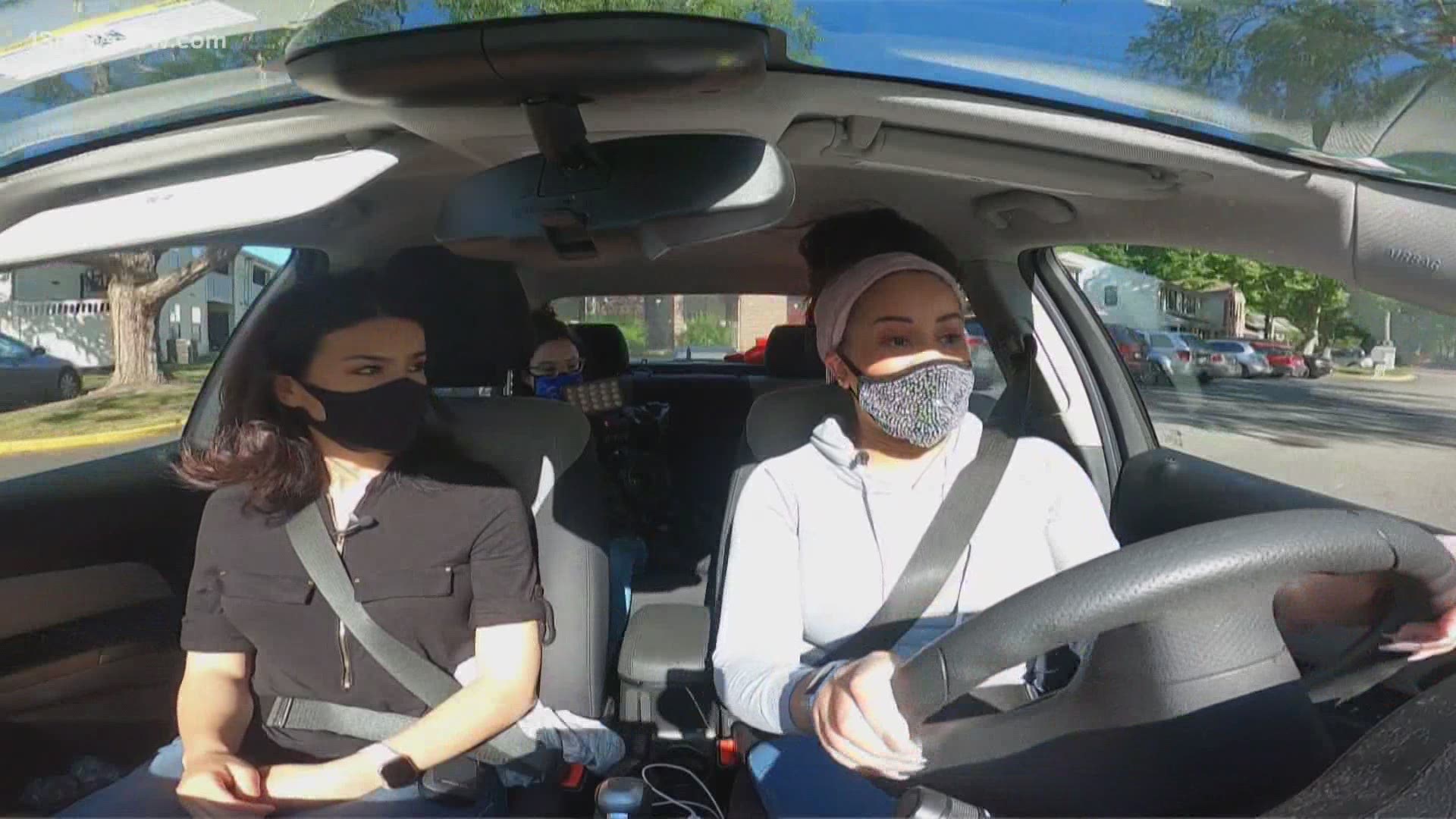NEWPORT NEWS, Va. — At eight in the morning, DoorDash driver Nikki Harris is already busy making her rounds across Newport News.
Over the last three years, delivering food has been her full-time job. But when the pandemic began, her laidback gig suddenly took a turn.
“A lot of people I know that were Dashing stopped. They were just really scared. We felt like we were really putting ourselves at risk at first,” Harris said.
She said working on the frontlines every day was a risk to her and her family. Between walking into restaurants and encountering maskless customers, she was worried.
Even now, she’s concerned people have let their guards down.
“I don’t know if all essential workers feel that they’ve been properly compensated for the risks that they’ve taken,” Harris said. “I think that’s probably where not just DoorDash has failed, but the industries overall.”
She believes DoorDash should’ve been more proactive in protecting drivers.
A spokesperson for DoorDash says the company provided all of its drivers with personal protective equipment (PPE), but Harris argues it didn’t come soon enough.
DoorDash also provided sick leave to Dashers who got COVID-19.
James Morley, a DoorDash driver from Yorktown, was one of them.
Morley, a DJ, had to get creative when the pandemic canceled his gigs. That’s when he decided to start Dashing. Then, he got the virus. He believes it happened on the job.
“I was worried at one point I might not make it,” Morley said. “I was laid out for a good two weeks. I got really sick and ended up in the emergency room because of it.”
During the pandemic, food delivery companies saw their sales soar. By the end of 2020, DoorDash’s orders grew 233% year over year, totaling up to $273 million in sales.
But Dashers or independent workers say their pay is unstable. Oftentimes, Harris rejected orders that didn't pay enough. During a recent ride, she only earned four dollars for a delivery that could take 20 minutes to complete. Many times, the customer wouldn't even leave a tip.
As gig workers, DoorDash drivers aren’t entitled to a minimum wage, overtime, or benefits like health insurance.
Dr. Eric Claville, the Director for African American Public Policy at Norfolk State University, is optimistic that could soon change.
“In order for workers in the gig economy to have more protections under employment laws, the designation of gig workers would have to be changed from independent contractors to employees,” said Claville.
Recently, United States Secretary of Labor Marty Walsh said gig workers should be classified as employees.
A spokesperson for DoorDash said:
“Dashers work fewer than four hours per week on average and they overwhelmingly tell us how important flexibility is to them when it comes to earning on their own schedule, which is exactly why we remain committed to protecting their independence while providing greater benefits.”
After a rough year of Dashing through the pandemic, drivers like Morley and Harris hope for better pay, more protections, and perhaps a little more courtesy while dashing.
“We're doing the best we can for folks. I just want them to understand that. If they don’t wanna go out of their house because they don’t think it’s safe to go out of their house, then they need to understand that we’re the ones going out of our house for them,” Morley said.

